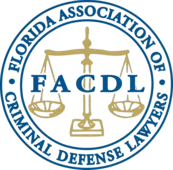Marchman Act

In This Article
Marchman Act
Addiction has no boundaries and can affect any individual from any background and affluency. Although there is still a significant amount of stigma around substance use and addiction, we believe there should be no embarrassment or shame when searching for help for your loved one or family member. Addiction is a family disease and needs to be handled individually, carefully, and with precision. In 1993 the Florida legislature passed the Hal S. Marchman Act to provide loved ones and professionals a vehicle to attempt to save the life of someone immediately incapable of saving themselves from their substance use disorder. While a Marchman act attorney is not required for the petitioner, any stage of this process can be quite cumbersome, often confusing, and difficult to navigate and the assistance of a lawyer with knowledge of the law and the rules and regulations related to it can be very helpful and time-saving in this very difficult, yet potentially lifesaving process.
Involuntary Treatment Services
Many families and friendships are impacted by loved ones who have substance abuse disorders or co-occurring substance use disorders and diagnosed mental illness. These families may feel like they are alone in trying to seek help for their loved one. It is not unusual for individuals trying to save their loved one’s life to feel like they have exhausted all avenues in an effort to obtain help. In Florida, they can seek to obtain court intervention through an order for involuntary services.
The first step to seeking court help through the Marchman Act is to file a petition for involuntary treatment services. If the individual who treatment is being sought for is an adult, then this petition may be filed by the individual’s spouse, legal guardian, relative, service provider, or an adult with direct personal knowledge of the individual’s substance use disorder and their prior history with treatment. Fla. Stat. § 397.68112(1)
If the individual is a minor, the only person that may file the petition is a parent, legal guardian, or service provider. Fla. Stat. § 397.68112(2)
Prior to July 1, 2024, an individual typically needed to file two separate petitions in order to have a court hearing to determine if the respondent met the criteria for the court to enter an involuntary treatment order. The first petition was a petition for involuntary assessment and stabilization. Once an assessment was completed the petitioner would then need to file a separate petition for involuntary services.
On July 1, 2024, the petition process changed significantly. In an attempt to streamline the process of having the court determine whether an individual should be court ordered into treatment there is now only one petition needed to seek court ordered treatment services. Once the petition for treatment services is filed, the court will review the petition ex-parte and review the alleged facts to see if the petition meets the statutory criteria. If the petition meets the factual requirements, the court will set the matter for hearing within ten (10) court working days.
In filing a petition for treatment services, the petitioner is required to explain to the court the reasons that they believe the individual or respondent needs court ordered treatment. The petition for involuntary treatment services must be supported by facts personally known to the petitioner(s) that address how the respondent meets the statutory criteria. To meet those criteria, the petitioner must first describe the reason for the petitioner’s belief that the respondent suffers from a substance use disorder. The petitioner must then set out facts that show the respondent has lost the power of self-control as it relates to the substance abuse. Finally, the petitioner must either state in the petition why the petitioner believes that the respondent has or will inflict physical harm to themselves or others without court intervention or that respondent is so impaired by their substance abuse disorder that the respondent is incapable of appreciating his or her need for treatment and making a rational decision about that need.
Once the petition for treatment services is filed, the clerk’s office will determine whether the respondent has a private attorney or whether the appointment of counsel is appropriate. In most cases the respondent will be appointed an attorney. It is important to understand that the petitioner is not entitled to court appointed counsel but may retain their own lawyer. After the clerk makes this determination, the court is required to schedule the hearing on the petition within ten (10) court working days.
The court must then review the petition to see if it meets the statutory requirements and whether an emergency condition exists under Section 397.6818, Florida Statutes. If the petitioner has alleged an emergency condition or the court determines that one exists based on the review of the petition, the court can enter an order for the respondent to be involuntarily assessed and stabilized. If the court makes that determination the individual will be brought to a qualifying detoxification receiving facility. The individual will be held no longer than seventy-two (72) hours unless the service provider requests more time to conduct the assessment or detoxify the respondent. The service provider cannot hold the individual past the hearing date without an order granting the petition.
Once the court makes the required determinations the respondent will be served a copy of the petition and a summons to appear at the hearing. The respondent must have an assessment completed prior to the court entering an order for involuntary treatment services. This assessment is designed to provide a diagnosis and overview of the individual’s substance use disorder, any past and prior treatment that the individual has attempted, and suggested treatment recommendations. If the respondent has not been assessed by the hearing date and the court determines that the respondent reasonably appears to meet the statutory criteria, the court must issue an involuntary assessment and stabilization order to determine the proper level of care that the respondent needs.
Once the respondent has been assessed the respondent is entitled to a hearing with witnesses prior to the court ordering the respondent into involuntary treatment services. The respondent will have a lawyer appointed to them or they can retain private counsel to assist them. The petitioner has the sole responsibility for proving by clear and convincing evidence that the respondent meets the statutory criteria for the court to order the respondent undergo involuntary treatment services under Section 397.6957, Florida Statutes. This means that it is the petitioner’s burden to introduce evidence in this hearing to prove that the respondent meets the criteria for the court to issue an order for involuntary treatment. Whether a petitioner represents themselves as a pro se litigant or has an attorney the presentation of that evidence must be done in accordance with the Florida Statutes and the Florida Rules of Evidence. A pro se litigant is not going to be afforded any leniency and or relaxation of the statutes and rules. It is the sole burden of the petitioner to prove through testimony, physical evidence, or other types of evidence that the respondent meets the criteria and should be ordered into treatment.
If the court decides to grant the Petition For Involuntary Services and enters an order for involuntary services under Section 397.697, Florida Statutes, the court will likely follow the treatment recommendations that were recommended in the assessment. This order is for up to ninety (90) days. The court does not have to follow the treatment recommendations and may order higher or lower levels of care. In ordering treatment, the court has the discretion to order the respondent to a publicly funded licensed provider or a privately funded licensed service provider if the respondent has the ability to pay or a person on the respondent’s behalf expresses willingness to pay for those services.
Petition For Renewal of the Involuntary Treatment Services
Under Florida Section 397.6975(1), Florida Statutes, the court may order an extension of the previously entered order for involuntary services or treatment. For the court to enter such an order, a petition for renewal of those services must be filed by the service provider or by the person who filed the initial petition for the initial treatment order if the petition is accompanied by supporting documentation from the service provider if the service provider feels that the individual continues to meet the criteria of Section 397.693, Florida Statutes. This petition must be filed prior to the expiration of the previously entered order for services.
While a lawyer is not required for the petitioner, any stage of this process, at Paul Figueroa Law we understand that the Marchman Act is quite a cumbersome, often confusing process for both the petitioner and the respondent. In handling these cases we also truly understand the difficulties that families and friends face when trying to navigate the process of helping a loved one who is battling a substance use disorder or co-occurring disorder. We also understand that this process can be misused by those that are seeking to use it with a motive that is anything other than trying to get a loved one the help the need. The assistance of a lawyer with knowledge of the law and the rules and regulations related to it can be very helpful and time-saving in this very difficult process. If you have questions about the Marchman Act call our office set up a free consultation.
If you are currently facing a legal situation or have questions about your legal rights, don’t wait until it’s too late. Call (813) 213-0000 now or fill out our CONTACT form to speak with an experienced attorney who can guide you through the legal process and get you the help you need to protect your future.









